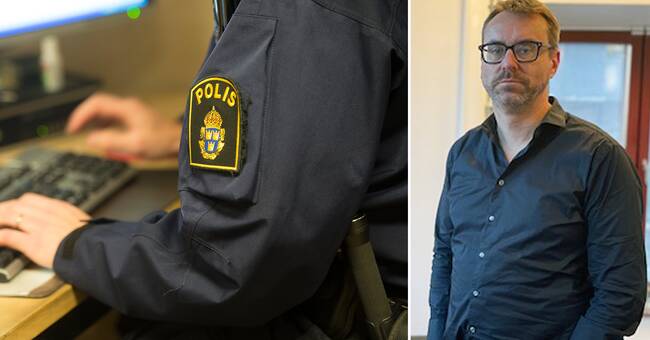Andreas Liljegren is an associate professor in social work.
His study "The police and 'the balance' —managing the workload within Swedish investigation units" was recently published.
In it, he tries to describe what he calls the police's strategies for dealing with an excessive workload.
A main strategy, according to the associate professor, is to write off simpler matters.
- Absolutely.
That is my description after the interviews I did with a large number of police officers in a police area in a big city, he says.
Impossible dilemma
Andreas Liljegren assumes that all welfare organizations have a dilemma with congestion, and claims that there will always be a gap between the resources an organization receives and the expectations that exist from the state and citizens.
- The police can not say "Sorry, we have other things to do now" but must take everything.
Then a depreciation culture is created.
You have to write off cases to create space in an impossible equation, he claims.
The same picture is given in the review that the local radio channel P4 reports today.
Incorrect
But that police would embrace a "depreciation culture" and also close cases that can be investigated is firmly denied by Ulf Merlander, local police area chief Greater Gothenburg Northeast.
- No, you do not try to find a basis for depreciation.
An investigation is always made if there is the slightest reconnaissance spread, he says.
He pointed out that those who take up the report do not make a decision on possible depreciation.
This is done by an initial preliminary investigation leader, IFL, whose decision is reviewed by another preliminary investigation leader.
Old picture
Before the major reorganization of the Swedish police in 2015, there was a situation where the balances (cases awaiting investigation) were often extremely high.
- Then there may have been a will to write off, as a pure survival strategy - so as not to miss really serious crimes.
But since the reorganization, all registrations are handled much better, says Ulf Merlander.

